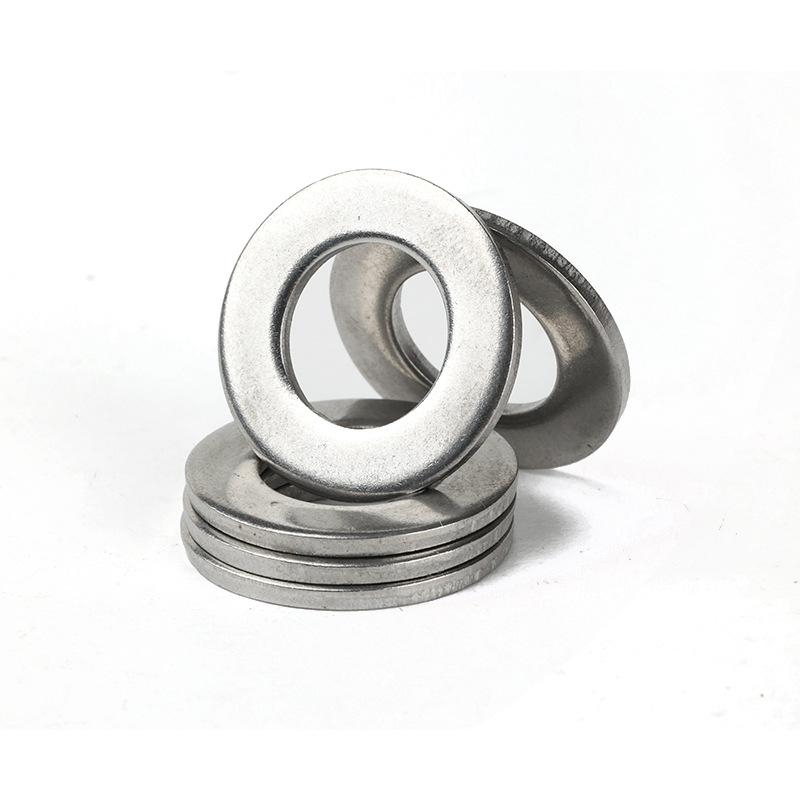

Exploring the Benefits of Using M6 Thick Washers for Enhanced Stability and Durability
Aug . 15, 2024 06:22 Back to list
Exploring the Benefits of Using M6 Thick Washers for Enhanced Stability and Durability
Understanding M6 Thick Washers Importance and Applications
In the world of engineering and manufacturing, the significance of small components cannot be overstated. One such essential component is the M6 thick washer. Though they might seem inconspicuous, thick washers play a crucial role in various applications, enhancing the performance and longevity of mechanical systems.
What is an M6 Thick Washer?
An M6 thick washer is a flat piece of material, often made of metal, plastic, or composite materials, with a hole in the center. The M6 designation indicates that the washer is designed for use with M6 screws or bolts, which have a nominal diameter of 6 millimeters. The thickness of the washer can vary, but it is typically thicker than standard washers, providing additional strength and load-bearing capacity.
Applications of M6 Thick Washers
M6 thick washers are widely used across various industries, including automotive, construction, and aerospace
. Their applications include1. Load Distribution One of the primary functions of a washer is to distribute the load evenly when a bolt or screw is tightened. M6 thick washers effectively spread the load over a larger surface area, reducing the risk of damage to the material being fastened. This is particularly important in softer materials that could deform under pressure.
2. Prevention of Loosening In dynamic applications where vibrations are common, M6 thick washers can help prevent bolts and screws from loosening over time. The added thickness increases friction between the washer and the surface, providing a more secure grip.
3. Corrosion Resistance In many applications, the environmental conditions can lead to corrosion of the fasteners. Using an M6 thick washer made from corrosion-resistant materials, such as stainless steel or coated metals, can help protect the integrity of the bolted joint. This is critical in applications exposed to moisture, chemicals, or extreme temperatures.
m6 thick washer

4. Compensation for Surface Irregularities Surfaces that are not perfectly flat can make it difficult to achieve a secure connection. M6 thick washers help to compensate for these irregularities, ensuring a tighter and more stable fit.
5. Electrical Insulation In electrical applications, washers may also serve as insulators. Specially designed M6 thick washers can provide electrical insulation between conductive parts, preventing unwanted circuits and enhancing safety.
Choosing the Right M6 Thick Washer
Selecting the appropriate M6 thick washer involves considering several factors
- Material The choice of material depends on the specific application and the environment it will be exposed to. For outdoor or marine applications, stainless steel is often preferred for its corrosion resistance.
- Thickness The required thickness may vary depending on the load and the surface conditions. Thicker washers can better support heavier loads but may not be necessary for lighter applications.
- Finish The surface finish can impact the friction and wear characteristics of the washer. A smooth finish may be ideal for applications requiring easy slide, while a rough finish can enhance grip.
Conclusion
In summary, M6 thick washers may be small components, but they are integral to the performance and safety of many mechanical systems. Their ability to distribute load, prevent loosening, and resist corrosion makes them invaluable across various industries. When selecting the right thick washer, it is essential to consider material, thickness, and finish to ensure optimal performance in any given application. Whether in automotive assemblies, construction projects, or delicate aerospace mechanisms, understanding and utilizing M6 thick washers properly can lead to improved reliability and efficiency.
Latest news
-
Hot Dip Galvanized Bolts-About LongZe|High Strength, Corrosion Resistance
NewsJul.30,2025
-
High-Strength Hot Dip Galvanized Bolts - Hebei Longze | Corrosion Resistance, Customization
NewsJul.30,2025
-
Hot Dip Galvanized Bolts-Hebei Longze|Corrosion Resistance&High Strength
NewsJul.30,2025
-
High-Strength Hot-Dip Galvanized Bolts-Hebei Longze|Corrosion Resistance&High Strength
NewsJul.30,2025
-
Hot Dip Galvanized Bolts-Hebei Longze|Corrosion Resistance&High Strength
NewsJul.30,2025
-
Hot Dip Galvanized Bolts - Hebei Longze | Corrosion Resistance, High Strength
NewsJul.30,2025

